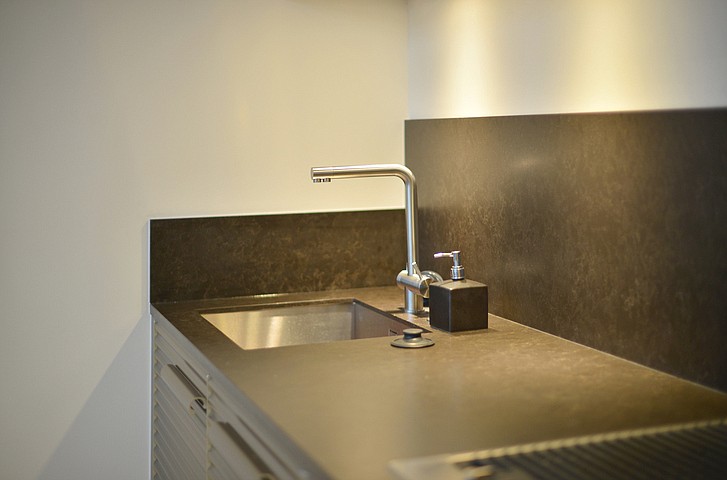For some reason, HGTV has become a generational flashpoint.
It comes down to this: Are you generationally inclined to think of granite kitchen countertops as a right or a hard-earned privilege?
This very discussion came up in my Sunday School class last week. Most of the the class members, family folks in their 40s and 50s, are bothered by the young house hunters they see on HGTV who recoil at the sight of tile or Formica countertops.
Members of the class recalled seeing couples in their 20s and 30s on HGTV rejecting - or at least deriding - houses without updated kitchens and instead demanding to see houses with granite countertops and stainless-steel appliances.
One class member recalled that he launched as a young adult with a kitchen filled with porch furniture. Another lamented that a family member's house, despite being immaculate, was difficult to sell because young buyers demanded that the pristine tile countertops be ripped out and replaced with stone surfaces as a condition of sale.
Many young buyers are apparently unwilling to accept any amount of lifestyle regression from the homes they grew up in. If they were reared in houses with nice, upgraded kitchens, they see such amenities as a birthright.
It sparked a discussion among my church friends about whether we 21st-century parents give our kids too much, too soon.
I told the class about observing new, private apartment complexes being built downtown around the University of Tennessee of Chattanooga that make my 1970s dorm room at a midstate university look like the slums of Mumbai.
"It dawned on me that a lot of these kids are taking out college loans to stay in apartments they may not be able to afford when they graduate," I said in Sunday School. "They may not realize it yet, but no bank is going to lend them money to pay rent when they graduate. A collateralized mortgage on a starter house, maybe; but apartment rent, no."
Too, how many of these young adults realize that 10 years from now they might still be paying - in the form of loan installments - for that nice apartment they had downtown back when they were 19 or 20 years old?
Frankly, I think it's up to parents to point out these trade-offs. Many young adults simply don't have enough life experience to think through these unintended consequences of overborrowing.
I was pleased to learn from my 16-year-old son recently that he's ready to look for a job this summer. There's not a quicker way to learn the value of money as a teenager than to see your labor converted into a paycheck. So far, he's already shown a bit of entrepreneurial spirit by cutting grass, dog-sitting and buying and selling soccer cleats on eBay. Punching a clock, even for just a few hours a week, is a logical next step.
Before he got his driver's license last month, we sat down with our auto insurance agent. I asked her to tell him the financial consequences of his first speeding ticket. What he thought would be just a $50 fine would actually result in a 36-month insurance premium increase that would cost our family about $1,800 in total.
Later, I told him how many hours his mom and I have to work to bring home $1,800, and he seemed to take the information to heart. He may get a speeding ticket tomorrow, but at least he will know the consequences.
A sense of entitlement thrives in a low-information environment. It's our job as parents to teach our kids the value of money. Otherwise they will grow up confusing "nice" with "necessary."
Stone countertops are nice but not necessary. Help us out here, HGTV.
Contact Mark Kennedy at mkennedy@timesfreepress.com or 423-757-6645.
